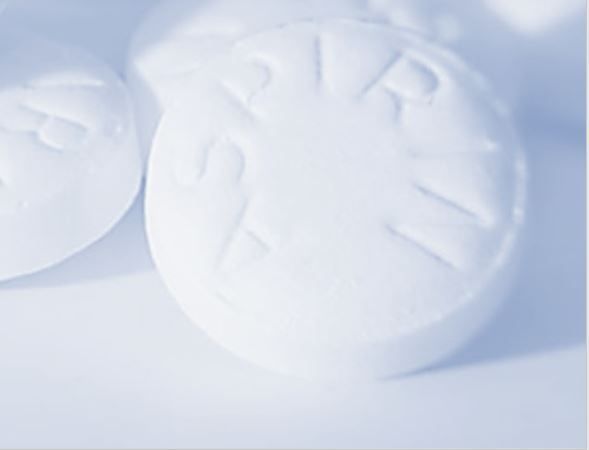- Clinical Technology
- Adult Immunization
- Hepatology
- Pediatric Immunization
- Screening
- Psychiatry
- Allergy
- Women's Health
- Cardiology
- Pediatrics
- Dermatology
- Endocrinology
- Pain Management
- Gastroenterology
- Infectious Disease
- Obesity Medicine
- Rheumatology
- Nephrology
- Neurology
- Pulmonology
Older US Adults Without CVD Still Using Aspirin for Primary Prevention
Nearly one-third of US adults aged 60 years and older continue to take daily aspirin despite published evidence recommending against use in the absence of CVD.
Nearly one-third of US adults aged 60 years and older who do not have cardiovascular disease (CVD) continued to use aspirin in 2021 for primary CVD prevention, according to new survey findings published in the Annals of Internal Medicine.1 Results of the Brief Research Report also indicated that approximately 1 in 20 in this population were using aspirin without the advice of a health care professional.
©Shain Maritch/Shutterstock.com

The Cleveland Clinic study authors, led by Mohak Gupta, MD, an internal medicine resident at the Cleveland Clinic, wrote that the daily aspirin practice was still common in the 60 and older age group in 2021 even though overall aspirin use in the US declined following guidance in 2019 from the American College of Cardiology (ACC) and the American Heart Association (AHA).2 The ACC/AHA advised against regular aspirin use by adults aged 70 years and older, those without a history of CVD, and by those with increased bleeding risk.2
Data from large randomized well publicized trials of aspirin use in 2018, ASPREE, ARRIVE and ASCEND, indicated the benefits of aspirin for primary prevention were limited in the context of available modern preventive therapies, and particularly in older adults, findings that led to the ACC/AHA 2019 updated guidance. More recently, in 2022, the US Preventive Services Task Force (USPSTF) published similar recommendations against use of low-dose aspirin for primary CVD prevention in adults aged 60 years and older.3 In younger adults, aged 40 to 59, with a 10-year CVD risk of 10% or greater, the USPSTF said a decision to begin regular aspirin therapy should be made by a physician and patient on a case-by-case basis.
For their study to characterize trends in prevalence of aspirin use for CVD prevention among US adults, Gupta and colleagues analyzed data from the National Health Interview Survey Sample Adult component for 2012-2018 and for 2019 for participants aged 40 years and older. The final cohort numbered 186 425, representing approximately 150 million adults, and 52.6% were women.1
FINDINGS
Overall, the researchers found that aspirin use was higher among older adults and those with multiple cardiovascular risk factors.
In 2021, they reported, 18.5% of adults aged 40 years and older and 29.7% of those 60 years and older who did not have CVD said they were using aspirin for primary prevention of heart disease. Among the latter group, 5.2% were found to be using aspirin without medical advice.1
Between 2012 and 2017 a slight decline in use of aspirin for primary prevention was observed with a larger decrease seen after 2018, likely a result of findings from the ARRIVE, ASPREE, and ASCEND trials. The decrease was particularly pronounced in those aged 60 years and older. Investigators learned that the use of aspirin under medical supervision in 2021 was lower than between 2012 and 2017, also likely a combined result of emerging evidence against liberal use and professional society recommendations. The respective prevalence by time period by age group was 19.3% vs 27.6% to 31.2% among adults aged 60 to 69 years, and 30.6% vs 38.35% to 41.6% among adults aged 70 years or older. After 2018, self-use without clinical guidance also was lower for adults aged 70 and older (4.5% vs 7.0%).1
Some adults surveyed reported not taking aspirin despite a clinician’s recommendation; among them, 44.5% were “eventually advised” to stop using aspirin for primary prevention in 2021, an increase from 30.0% in 2012-2017.1
Gupta and colleagues observed a small continuous decline in medically advised aspirin use over time for secondary CVD prevention, but noted there was no major change after 2018.
The authors acknowledge several limitations to their study including the absence of data required to estimate risk of CVD or bleeding and reliance on participant self-report, always subject to recall bias. The study scope was limited by the absence of data on aspirin use by adults younger than age 40 as well as information on concomitant medication use.
They end on a positive note, followed by a call to action. “Our study suggests that more physicians are recommending discontinuation of aspirin therapy for primary prevention,” they wrote. However, they emphasize the “urgent need for physicians to inquire about aspirin use, including self-use, and engage in risk–benefit discussions to reduce inappropriate use for primary prevention in older adults.”
